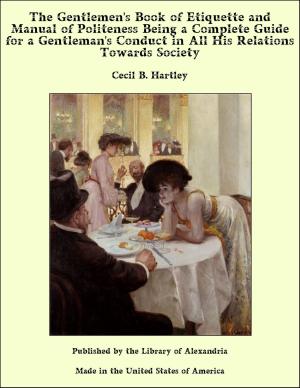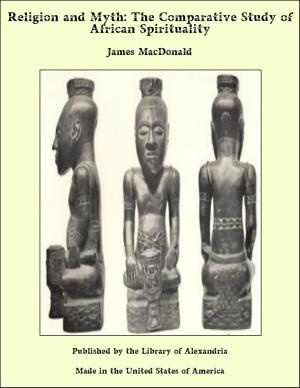Historic Doubts Relative to Napoleon Buonaparte
Nonfiction, Religion & Spirituality, New Age, History, Fiction & Literature| Author: | Richard Whately | ISBN: | 9781465554772 |
| Publisher: | Library of Alexandria | Publication: | March 8, 2015 |
| Imprint: | Language: | English |
| Author: | Richard Whately |
| ISBN: | 9781465554772 |
| Publisher: | Library of Alexandria |
| Publication: | March 8, 2015 |
| Imprint: | |
| Language: | English |
Several of the readers of this little work (first published in 1819) have derived much amusement from the mistakes of others respecting its nature and object. It has been by some represented as a serious attempt to inculcate universal scepticism; while others have considered it as a jeu d'esprit, &c.[1] The author does not, however, design to entertain his readers with accounts of the mistakes which, have arisen respecting it; because many of them, he is convinced, would be received with incredulity; and he could not, without an indelicate exposure of individuals, verify his anecdotes. But some sensible readers have complained of the difficulty of determining what they are to believe. Of the existence of Buonaparte, indeed, they remained fully convinced; nor, if it were left doubtful, would any important results ensue; but if they can give no satisfactory reason for their conviction, how can they know, it is asked, that they may not be mistaken as to other points of greater consequence, on which they are no less fully convinced, but on which all men are not agreed? The author has accordingly been solicited to endeavour to frame some canons which may furnish a standard for determining what evidence is to be received. This he conceives to be impracticable, except to that extent to which it is accomplished by a sound system of Logic; including under that title, a portion—that which relates to the "Laws of Evidence"—of what is sometimes treated under the head of "Rhetoric." But the full and complete accomplishment of such an object would confer on Man the unattainable attribute of infallibility. But the difficulty complained of, he conceives to arise, in many instances, from men's mis-stating the grounds of their own conviction. They are convinced, indeed, and perhaps with very sufficient reason; but they imagine this reason to be a different one from what it is. The evidence to which they have assented is applied to their minds in a different manner from that in which they believe that it is—and suppose that it ought to be—applied. And when challenged to defend and justify their own belief, they feel at a loss, because they are attempting to maintain a position which is not, in fact, that in which their force lies
Several of the readers of this little work (first published in 1819) have derived much amusement from the mistakes of others respecting its nature and object. It has been by some represented as a serious attempt to inculcate universal scepticism; while others have considered it as a jeu d'esprit, &c.[1] The author does not, however, design to entertain his readers with accounts of the mistakes which, have arisen respecting it; because many of them, he is convinced, would be received with incredulity; and he could not, without an indelicate exposure of individuals, verify his anecdotes. But some sensible readers have complained of the difficulty of determining what they are to believe. Of the existence of Buonaparte, indeed, they remained fully convinced; nor, if it were left doubtful, would any important results ensue; but if they can give no satisfactory reason for their conviction, how can they know, it is asked, that they may not be mistaken as to other points of greater consequence, on which they are no less fully convinced, but on which all men are not agreed? The author has accordingly been solicited to endeavour to frame some canons which may furnish a standard for determining what evidence is to be received. This he conceives to be impracticable, except to that extent to which it is accomplished by a sound system of Logic; including under that title, a portion—that which relates to the "Laws of Evidence"—of what is sometimes treated under the head of "Rhetoric." But the full and complete accomplishment of such an object would confer on Man the unattainable attribute of infallibility. But the difficulty complained of, he conceives to arise, in many instances, from men's mis-stating the grounds of their own conviction. They are convinced, indeed, and perhaps with very sufficient reason; but they imagine this reason to be a different one from what it is. The evidence to which they have assented is applied to their minds in a different manner from that in which they believe that it is—and suppose that it ought to be—applied. And when challenged to defend and justify their own belief, they feel at a loss, because they are attempting to maintain a position which is not, in fact, that in which their force lies















